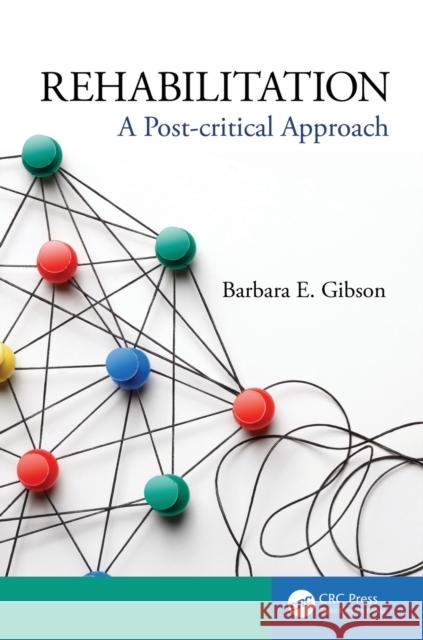Rehabilitation: A Post-Critical Approach » książka
Rehabilitation: A Post-Critical Approach
ISBN-13: 9781482237238 / Angielski / Miękka / 2016 / 162 str.
Rehabilitation: A Post-Critical Approach
ISBN-13: 9781482237238 / Angielski / Miękka / 2016 / 162 str.
(netto: 381,66 VAT: 5%)
Najniższa cena z 30 dni: 377,75
ok. 22 dni roboczych.
Darmowa dostawa!
Rehabilitation is dedicated to helping people not only survive, but also thrive. Despite this complex goal, the organizing principles of rehabilitation still rely on biomedicine to construct disability as a problem of impaired bodies. Rehabilitation professionals are committed to helping to enhance people s lives, but many struggle with how to do so in light of the bigger questions regarding their roles in, for example, working to maintain hope for recovery and/or promoting greater acceptance of diverse abilities. A key problem is the lack of theoretical tools for working through the function of rehabilitation in the lives of disabled people. Rehabilitation, for the most part, reflects a narrow mechanistic conception of movement. It considers movements of body structures such as joints, functional movements such as walking, or more recently, how movement and mobility facilitate participation in social roles. Despite a nascent concern with the environmental factors contributing to disablement, movement is still focused primarily on mobilizing people s bodies. Rehabilitation: A Post-critical Approach reexamines the philosophical foundations of rehabilitation, expanding the concept of movement beyond the physical body. Drawing from disability studies, sociology, anthropology, philosophy, cultural studies, and bioethics, this theoretically rigorous yet accessibly styled text:
- Explores the limitations of biomedicine as the organizing framework of rehabilitation
- Evaluates new directions to diversify contemporary rehabilitation practice
- Establishes the parameters for a reconfigured ethics of rehabilitation











